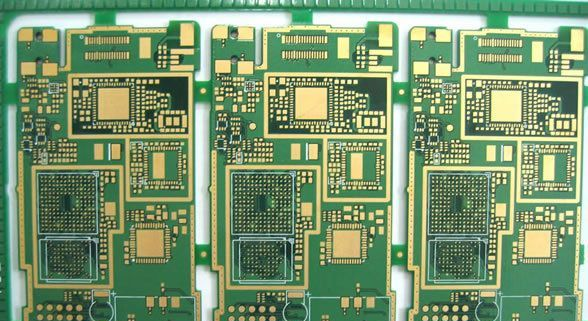Summary analysis 1: The crisis of the enterprise's crisis management The continuous depreciation of the US dollar and the relative appreciation of the currencies of various countries. Although this symbolizes that the national strength of the United States is in recession, the economic strength of other countries continues to advance, but in terms of trade, the country with which the currency appreciates, There will be an unfavorable export...
Analysis 1: Corporate Crisis Management The continuous depreciation of the US dollar and the relative appreciation of the currencies of various countries, although this symbolizes that the national strength of the United States is in decline, and the economic strength of other countries continues to advance, but in terms of trade, the country with a currency appreciation will certainly have an unfavorable export phenomenon. The depreciation of the US dollar has the effect of relieving its huge trade deficit.
The appreciation of national currencies is the most serious in the yen, and the stamina is the biggest. This poses a great threat to the survival of many Japanese companies. According to a report by the New Japan Securities Research Center, when the exchange rate of the Japanese yen to the US dollar rose to 100:1, only nine companies in Japan could survive, and other companies would close down because of their competitiveness.
Japanese companies, under the pressure of continued appreciation of the yen, have adopted “crisis management†measures to instill employee awareness. In order to save the picture, in many countermeasures, the "golden shelling" plan can be said to be the most meaningful, in the following ways:
1. Conducting overseas investment: Sending personnel to foreign countries to find countries or regions with sufficient labor and low wages, and set up factories in the region to reduce costs. For example, “Hitachi†transferred audio products to Southeast Asian countries and produced color TV sets in the US, Germany and the UK. "Honda" plans to set up a factory in the United States to produce cars. "Cannon" company invested in the production of photocopiers in the United States, France, Germany, Italy and other places. Many retail businesses are seeking development in Taiwan, Hong Kong, South Korea, Singapore, and the Philippines.
2. Diversified management: In the past, the vertical development of Japanese companies has now crossed the professional field and adopted horizontal diversification to develop in different industries in order to diversify investment risks. For example, “Japan Steel†began to import alcohol, “Asahi Pen†company entered the cosmetics market, and “Japan Exchangeâ€, which is a steel product manufacturing industry, joined the ranks of agricultural products processing industry and “Sumitomo Metal†investment “translation serviceâ€. Company and so on. In addition, there are large traders selling biscuits and chemical companies to set up teahouse chains, which can be described as varied.
3. Selling factories or stopping production: Selling factories that are not efficient or economically viable to reduce the cost burden. For example, “Shanshui†audio company sold the camera factory and “Aihua†stopped the production of the Beta system camera.
4. Reduction of personnel: For example, “Japan Steel†cut more than 1,900 employees in one breath, but it is not to let these employees lose their jobs, but to disband or distribute them to subsidiaries and newly developed industries.
5. Raise research and development funds: In order to meet the bigger and more severe competition and challenges in the future, the research and development expenditure of 2% of the annual gross national product will be raised to achieve more refined, better quality and lower cost. More competitive products.
These practices of Japanese companies are not only "metabolism", but "transformation of blood", "change of heart", "replacement of kidneys" ... not only "beauty and beauty" but "plastic surgery". These practices are all under the consciousness of “crisis managementâ€, with far-sighted and innovative changes.
These "golden shelling" techniques will not only bring an unprecedented revolution in Japan's industrial structure and business strategy, but also affect the economic changes and development of other countries. Therefore, it has already attracted widespread attention from all over the world.
Analysis 2: Selling all backlog products
The essence of the shelling of the golden scorpion is to confuse the opponent with the technique of blackmail, disguise and cover up the true intention. The intention is to de-stock the shell, but borrowing from business activities is often de-shelling. When the product is not sold well, this method can be used to regain the new life.
In the past few years, China’s 18 lotus flower tea sets exported to the United Kingdom, the original packaging is corrugated boxes, people feel that their quality is low, and can not see what is inside, although the price is very low, still no one cares. At this time, a department store in London added a beautiful package to the tea set and printed a color case on it. The price was raised from the original 1 pound to 9 pounds, but the purchaser has increased much more than it has since. It can be seen that transforming the packaging to make the product unsalable and selling it is the magical effect of the golden shell.
The attentive audience can know that the famous comic actor Ma Ji performed the comic dialogue "Cosmic Cigarette" at the 1985 Spring Festival Gala, which is an irony of this inferior product. Manufacturers deceive consumers by changing the brand name or trademark of the product.
Dealing with the "golden shells", consumers must not be confused by the superficial phenomenon of goods, to falsify the truth, to understand the essence; for production operators should better use the influence of brand, trademark, packaging on people's psychology, so that Your own products are more dynamic.
[calculation]
The shelling of the golden eagle is the time to escape from the crisis. When this time is implemented, the situation is extremely critical. It is already in an extremely unfavorable position. It cannot be retired, and it must not be rehabilitated to find a chance to make a comeback. But whether it is transfer or retreat, it is not panic, passive escape, but to maintain the original form, to take away the content, to stabilize the other side, to get rid of the danger and achieve their strategic goals.
Kylin Chemicals has been focusing on R&D, manufacturing and supply of specialty additive technologies to epoxy resin industry for over 20 years. Our novel technologies are marketed & supplied under the trade name KylinCure, serving our customers in the field of composites, coatings, adhesives and electric industries, etc. KylinCure is a group of substituted urea based accelerator for dicyandiamide-cured epoxy resins, significantly reduces the curing temperature without sacrificing the shelf life of the compounds.


Epoxy Curing Agents & Accelerators
Epoxy Curing Agents & Accelerators,Curing Agents For Epoxy Resin,Epoxy Curing Accelerating Agent
Kylin Chemicals Co., Ltd. , http://www.kylin-chemicals.com